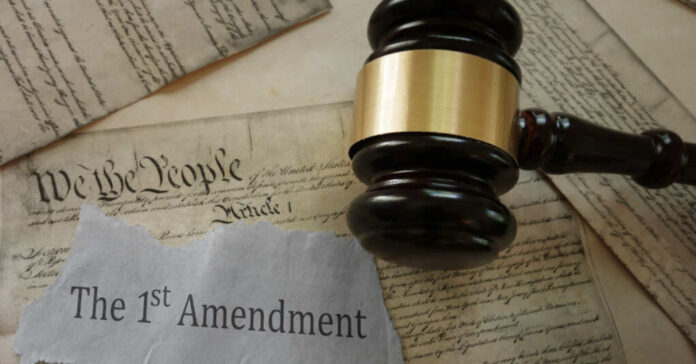
With protests happening every day, blistering op-eds in the media, and more, we have to take a moment to really look at the First Amendment and just how much it protects us. The reality is that it doesn’t offer as much protection as many assume.
The First Amendment of the United States Constitution offers robust support to the pillars of freedom of speech, religion, assembly, and press. It explicitly prohibits laws that make it illegal to speak freely or limit individuals in their right to observe any religion. Despite these principles, there are specific situations wherein the First Amendment doesn’t provide complete protection; this article aims to highlight those narrow instances.
It must be noted that these exceptions exist so as not to create lawless societal chaos while sustaining basic social order and maintaining some degree of decency within collective coexistence.
1. Obscenity and Child Pornography Laws
Child pornography is explicitly excluded from the ambit of First Amendment rights due to compelling reasons involving the prevention of exploitation of minors. Similarly, obscenities that pertain to the exhibition of materials primarily intended to appeal to prurient interest, such as lewd depictions unsuitable for minors, would also not enjoy protections under the First Amendment—as set out by numerous Supreme Court cases, including Miller v. California in 1973. These restrictions demonstrate legislative efforts to strike a balance between personal liberties and society’s responsibility to protect minors.
2. Inciting Violence and Harassments
Hate speech, often veiled insults, threats, or public provocations with offensively derogatory vocabularies targeting religious groups, minorities, women, and homosexuals, does not enjoy First Amendment immunity. As explained through cases such as Brandenburg v. Ohar, rulings have clarified these prohibitions to specifically encompass speech or communications that are intended to motivate imminent breakdown of order, riots, or violent unrest directly endangering lives. However, broad regulation on hate speech remains somewhat problematic due to a careful line drawing between banned harassment and freedom of expression.
3. Defamation and Slander
While protected political opinions might occasionally include some false accusations, libels, and slanders that intentionally damage reputations, leading to harmful consequences cannot claim the First Amendment’s wing. Legal redress in this regard is commonly referred to as ‘defamation’ or ‘slander,’ distinct from truthfully critical opinions that might still warrant constitutional cover according to recent Supreme Court cases. However, certain legal nuances often exist considering whether a statement is factually demonstrable as fake and consequently actionable.
4. Fraud, Blackmail and Extortion
The court recognizes extortion letters, false representations, and other fraudulent schemes as crimes that intrude upon a person’s freedom of speech while threatening interference under the ambit of First Amendment rights. Here, too, judiciary demarcates boundaries such as this exception does not inherently encompass criticism, even when deemed ill-intentioned, except when crossed over into illegality, i.e., actual violence or intimidation based on free speech as explained most recently in Central Hudson Gas & Electric Corp. v. Public Service Commission (New York).
5. Disclosure of Confidential Information
When disclosures invade privacy or reveal sensitive information that is not public knowledge and could adversely affect individuals or organizations, they fall outside the scope of the First Amendment’s reach. In the high profile case US v. Hubbard, several individuals were convicted for willful access or revelation of documents containing classified information despite the argument that this was essential as a journalistic act – affirming the boundary around these secrets, thus ensuring protection necessary for the public good.
Though primarily, American citizens enjoy extraordinary freedoms concerning their spoken or written word in adherence to the First Amendment, contextual limitations exist. Understanding these exemptions helps delineate where freedom of expression may clash disorderly with society either ethically or legally, necessitating government intervention.









